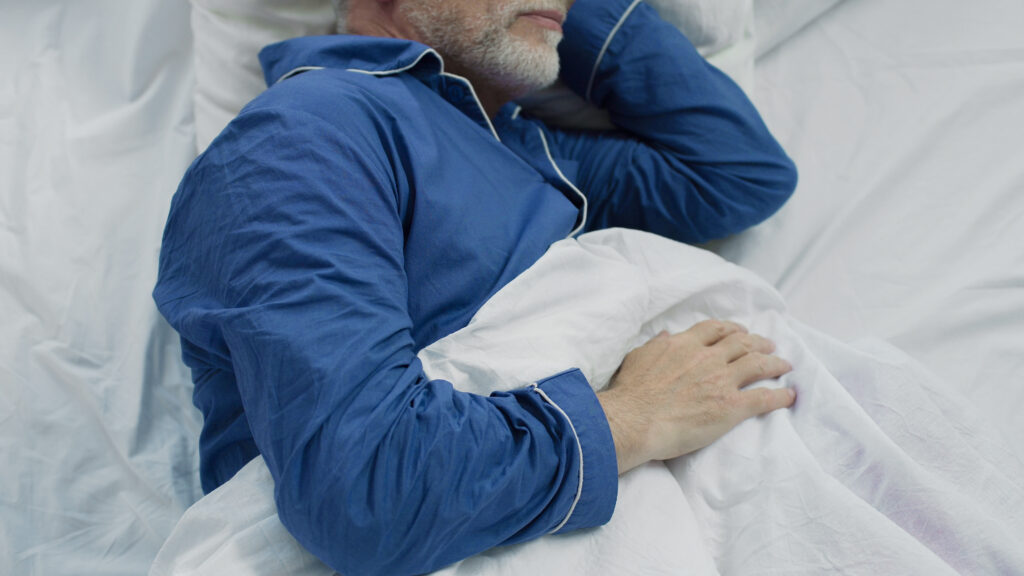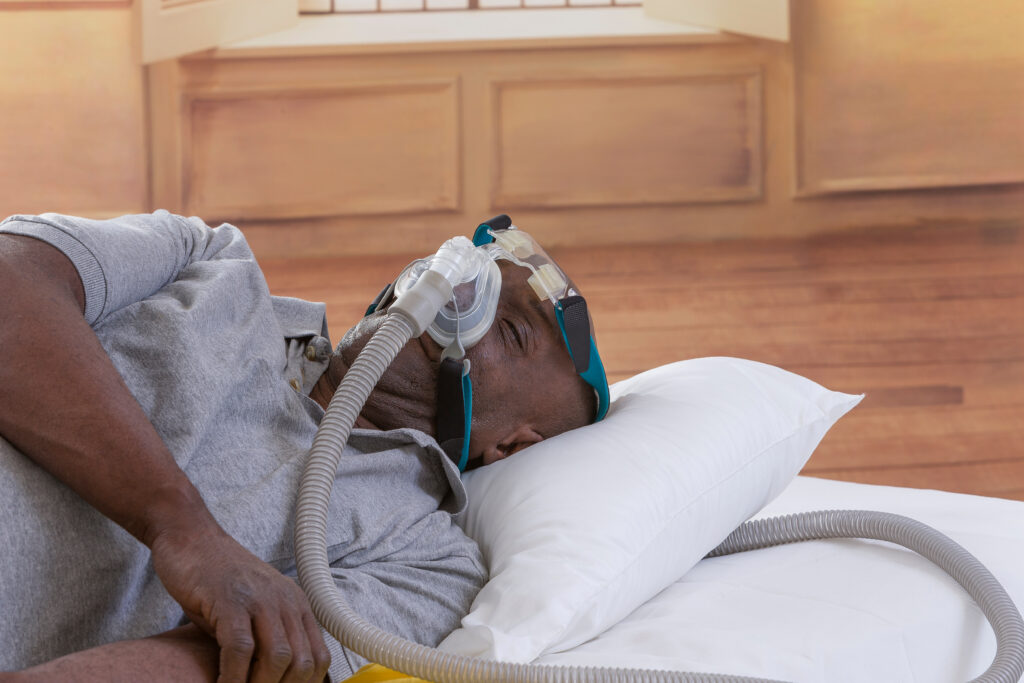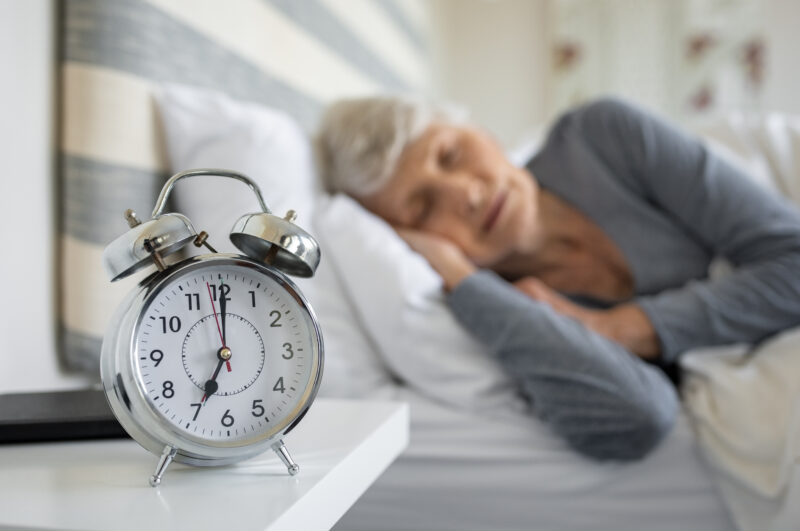While daytime sleep is fairly normal for seniors, excessive sleep in otherwise healthy older adults may be a cause for concern.
Likely an indication that their nighttime sleep is being interrupted by various factors (sleep apnea, medication, overstimulation, etc.), excessive sleep during the day could indicate certain serious problems that need to be addressed. In fact, studies have proven a relationship between excessive sleep and cognitive impairment and dementia.
Often, excessive sleeping may be a result of certain types of medication, or it could be a reaction to depression, family struggles, or even financial stress. Whatever the cause, caregivers should be aware of the dangers of excessive sleep and how to help the older adult in your life.

Effects of sleeping too much
Medical professionals have determined that sleeping too much is tied to a number of adverse health effects, which could be particularly dangerous for seniors, including:
- Cardiovascular decline: One geriatric medicine study showed that long sleep duration is associated with an increased cardiovascular mortality rate in seniors 65 and over. It showed that more than 14 hours of sleep during a 24-hour cycle on a constant basis increases cardiovascular morbidity by 43%.
- Muscle atrophy and bedsores: If muscles are not worked, they tend to atrophy and their health and substance degenerates. Inactivity during excessive sleep leads to atrophy, lessening the chances of healthy recovery and agility of the body. If sleeping in the same position for too long, bedsores can also occur.
- Energy levels: The less we move, the less likely we are to move. Excessive sleep causes inactivity that causes low energy levels, constant grogginess and brain fog. Loss of energy is likely to make the senior less willing to perform necessary physical therapy exercises properly, and this can lead to diminished health and shorter lifespans.
- Quality of life: Excessive sleeping sends a lot of people into a mindset of hopelessness and escape. There can be many reasons for this, but overall, quality of life is highly affected by sleeping all day. It decreases opportunities for socializing and exercise, along with decreasing a mindful presence with people who want to interact.
- Obesity and diabetes: Excessive sleep leads to decreased activity in general, which increases an older adult’s risk of obesity and type 2 diabetes.
How to spot oversleeping in seniors
Unless a diagnosed health problem or medication is affecting sleep patterns, anything over 12 hours of sleeping per day on a regular basis may be cause for concern.
Be on the lookout for some of the physical signs of oversleeping, which may include a loss of appetite, aggression, depression, a lack of desire for interaction with others, and refusing to go out during the day.

What to do when your senior sleeps too much
Start with speaking to their physician. Often medications can lead to oversleeping, especially medication for depression or sleeplessness during the night. Your loved one’s doctor may be able to change their prescription or provide alternate treatments that won’t interfere with the normal sleep cycle.
Sleep apnea is also a common issue for many seniors, which means that even when they do sleep sufficient hours every night, they still may not be rested by the morning. A C-PAP (or sleep apnea machine) may alleviate breathing difficulties during the night and ensure a much more restorative sleep.
Another option could include therapy to address any psychological issues that may trigger the need to escape reality. A therapist may help resolve these problems by discussing your loved one’s mental health, and perhaps even recommend some relaxing therapies such as breathing techniques and other mindful exercises to aid sleep.
At home, try to encourage your loved one to bathe just before bed, which can relax the body and mind. Music, massage, essential oils and candles can all help to induce better-quality sleep during the night and lessen the need for sleep during the day.
Finally, don’t underestimate the value of daily exercise. Just the act of walking around the house, working in the garden, strolling around the block, lifting some weights, or doing some exercise while watching television can have remarkable results for older adults, increasing energy and sustaining cardiac health.
Don’t sleep on excessive sleeping
Everybody has a unique sleep pattern, and your loved one’s sleep routine does not have to be written in stone. Pay attention to the natural sleeping habits of your older adult and attempt to cater to these as much as possible—and not force a new routine on them.
If excessive sleeping does become the routine, however, don’t ignore it. Arrange a visit to the senior’s health provider as soon as possible.

